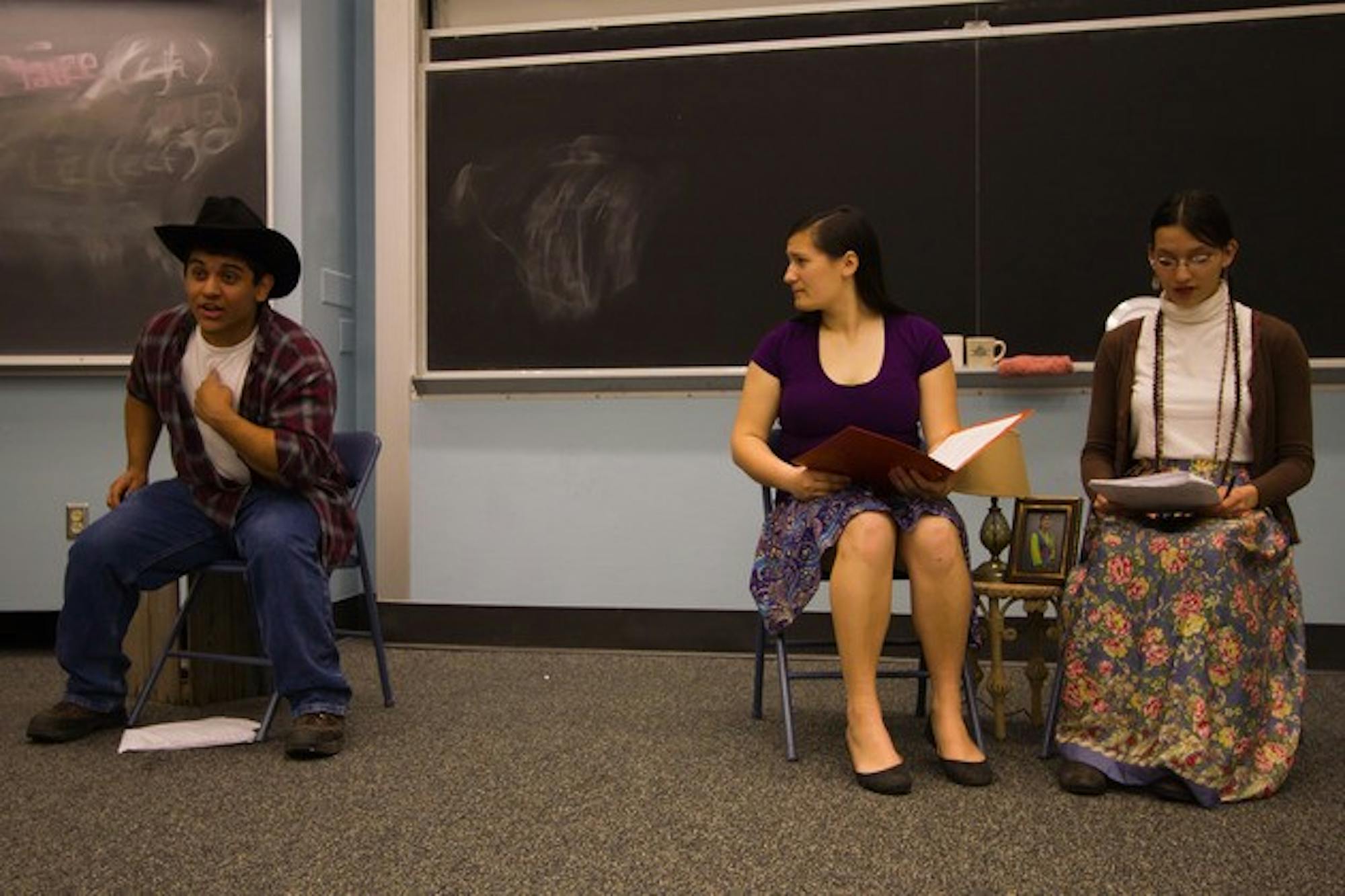Now a senior fellow pursuing an interdisciplinary study in Native American studies, history and theater, Gorlin has come far from her eighth grade oral history project. She crisscrossed between Dartmouth and Minneapolis eight times this year in order to complete her final project a play titled "88 Voices" that will be presented on Wednesday and Thursday at 7 p.m. in Silsby 028.
The play is compiled from conversations with 88 people 30 Native Americans living in urban Minneapolis and 58 other people Gorlin met on the street and in malls across the city. Some of those people included middle and high school history teachers.
Gorlin combined her 88 interviews into 14 fictional characters seven Native American, seven non-Native American who are portrayed by Dartmouth students. All of the words from the interviews were kept verbatim because Gorlin wanted to stay true to the interviewees' oral narratives, she said.
"There's a tradition of oral history in native cultures and I wanted to be able to honor that tradition of oral history," Gorlin said. "I didn't want to be another Westerner rewriting the words of native people."
In "88 Voices," Gorlin's goal is to address people's perceptions about contemporary Native American life and illuminate little-known Native American history, all while exploring the idea of personal and cultural identity. Gorlin said she also hopes to shed light on why a Dartmouth Indian mascot may be considered offensive.
"I wanted to address stereotypes that exist," Gorlin said. "Generally speaking, people have a perception of American Indians that they are stuck in the past through the 1830s because when we learn about American Indians in school, we often only learn about them until the Indian Removal Act of 1830."
Many people that Gorlin interviewed still associated Native Americans with mohawks, headdresses and war paint, as well as casinos and reservations, she said. In her research, Gorlin found that 77 percent of Native Americans in Minnesota live off their reservations, contrary to what many people she interviewed believed about the number of Native Americans who live on reservations.
The play centers on a white, part-Jewish girl named "White Girl" who is enrolled in an introductory Native American studies course in Minneapolis. Her preconceived notions about Native American culture are challenged throughout the play as she interacts with and learns from Native American and non-Native American characters.
"She starts off ignorant and she ends up ignorant because at the end, she thinks that she is an expert on native issues, but she's not," Gorlin said. "She only has a capful and she's never going to be able to understand the true plight of what these people have been through."
Like the character, Gorlin is part Jewish, but said that she does not associate herself with the culture. She said that many of her Native American interviewees drew parallels between their experiences and the Jewish-American experience and the Holocaust. Through her interviews, Gorlin's work morphed into a play addressing larger themes of cultural identity.
"My biggest hope is that people will leave the play realizing that everyone has a history and you don't necessarily have to be connected to it, but you need to understand why some people might be more connected to their history than others and respect that," Gorlin said.
Gorlin said she received guidance from her primary advisor, Native American studies professor Vera Palmer, as well as history professor Colin Calloway and theater department chair Peter Hackett. Gorlin also received development help from Susan Edwardson '12, an Inupik from Alaska who served as an assistant director, and from the creators of "The Laramie Project," a play that follows a similar oral history narrative, which Gorlin directed last year as part of the Dartmouth PRIDE Theater Festival.




